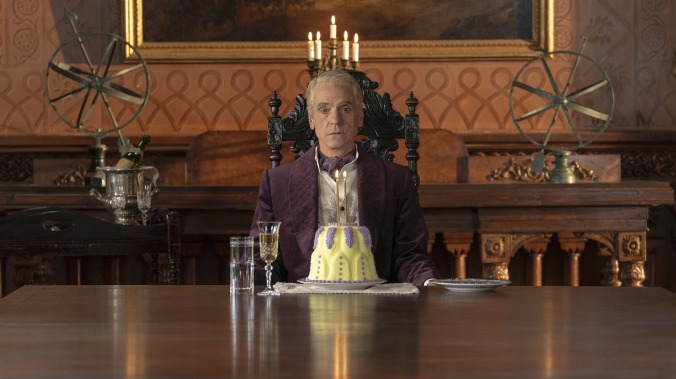Angelica Cataldo
Episode one of Damon Lindelof’s HBO miniseries Watchmen wastes no time diving right into the universe created by Alan Moore and Dave Gibbons. The series kicks off with a string of violence, harmonious with Watchmen’s notoriously dark tones. As Detective Angela Abar, Regina King brings a striking performance as a female cop assigned to take down the white supremacists who call themselves the Seventh Kavalry. Though familiarity with the original comic series is helpful in understanding the dynamic of this alternate world, Lindelof’s writing opens new doors for this retelling while staying true to the complex and cutthroat nature of Moore and Gibbons’ “superhero” universe. The pilot’s subtle hints to the looming dangers in President Robert Redford’s America left me wanting to see more of King in her vigilante-adjacent persona while navigating a fictitious world with very realistic and compelling problems.
Alex McLevy
What really stood out to me during this initial installment was just how oppressively bleak a mood Lindelof has again managed to create. There might not be a percentage of the population that just vanished, a la The Leftovers, but there’s an equally grim sense of heavy fatalism that’s draped over everyone and everything. It’s there in the way that every situation feels like a powder keg that could boil over into violence at a moment’s notice, even a children’s classroom (where that’s exactly what does happen); it’s there in the police station, where most exchanges between officers alternate between gallows humor and barely contained anger; and it’s waiting just outside the room during the one moment of levity and warmth (a garrulous extended family dinner, complete with laughing children), a specter of darkness that sporadically flashes across the faces of the adults like storm clouds threatening to unleash a deluge of rain.
And yet for all the ominous scenes and dark tone, there’s an unpredictability to the series that is keeping things lively. When the cops raid the farmhouse, we’re treated to an action showcase filmed with comic-book brio, that adds a heightened reality and stylistic verve to a series that already has costumed avengers and squid creatures raining from the sky. Such expressive variety is what is keeping things from feeling too heavy-handed, and thank god, because otherwise the series could become joyless. We’ll see if that clever blend of darkness and adrenaline continues; I hope so, because when it works—and it really worked here—it’s electric.
Erik Adams
It’s no Sudden Departure, but we’re still watching a story that’s kicking off in the wake of catastrophe: All these years later, and tiny “alien” cephalopods still come sweeping down the plains like the nuclear fallout their Big Apple-flattening squid daddy was intended to circumvent. That inclement-weather interlude is part of the world-building that makes me so eager to delve back into the Watchmen saga, in spite of the Snyderian translation and inferior comic-book follow-ups the past decade has brought us. Lindelof and team are taking greater liberties with the source material, but they’ve got a firm grasp on Watchmen’s funhouse-mirror qualities, its warped reflections of both our reality and our understanding of traditional superhero realities. My favorite touch? The ubiquitous marketing for American Hero Story, a prestige-TV telling of the Minutemen story that looks like it’ll be this Watchmen’s answer to Tales Of The Black Freighter. It took a minute (plus one globally unifying disaster), but the general population of Watchmen is finally as interested in watching superheroes as we are.
Randall Colburn
As someone who hasn’t read the source material or seen Zack Snyder’s 2009 adaptation, I found myself surprisingly comfortable in this reality. A few bits puzzled me, most of them having to do with Jeremy Irons and The Watchmaker’s Son, which just sounds interminable. But, as you’ve all mentioned, the world-building is really remarkable, and I enjoyed how the Oklahoma! musical helped ground the action, mythology, and racial politics, offering a vision of the state that’s as folksy and identifiable as it is dystopian. Tonally, I was worried that Watchmen would be as dour as the first season of The Leftovers, which remains an exhausting slog, but I was quite taken with how this episode balanced action, humor, tragedy, and politics in a way that feels narratively propulsive and thematically clear. Am I still confused by the panda guy? Yes. Very much so. But I’m excited to learn about the panda guy. And Jeremy Irons. And the naked blue man that I assume is on the way.


 Keep scrolling for more great stories from A.V. Club.
Keep scrolling for more great stories from A.V. Club.